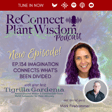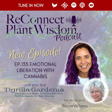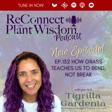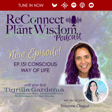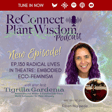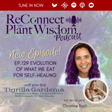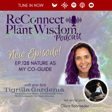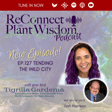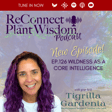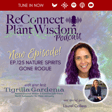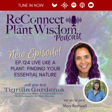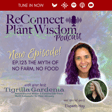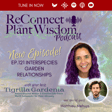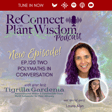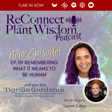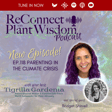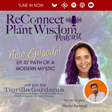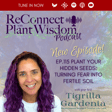
Ep.122 Outlawed Plant Allies and the Art of Sacrifice with Sarah Russo
When Sarah Russo and I sat down, we knew we were going deep—and we did. Together we explored her graphic novel Herbs for the Apocalypse, a raw and powerful work that blends science, punk aesthetics, and plant wisdom into a call for revolution.
We talked about what happens when plants with great power meet human fear, about how creativity becomes a collaboration with our green allies, and about the beauty of sacrifice as plants show us daily.
This conversation isn’t just about herbs or apocalyptic futures—it’s about resilience, resistance, and reimagining our relationship with plants as kin and co-conspirators.
This is a provocative exploration of what it means to listen, to co-create, and to allow plants to challenge our assumptions about beauty, power, and survival.
Topics Covered about The Apocolypse & Revolution
➡️ The creative process behind Herbs for the Apocalypse as a plant-human collaboration.
➡️ How plants embody sacrifice and resilience, modeling true revolution.
➡️ The tension between criminalizing powerful plants and learning from them.
➡️ Why plant communication expands far beyond science into lived, creative experience.
Chapters
00:00 Introduction
08:02 Bridging Science and Spirit
16:09 Translating Plant Intelligence
24:35 Redefining Identity
32:36 Plant Rituals & Initiation
40:42 Personal Risks & Sacrifices
Resources Mentioned
🌱 Herbs for the Apocalypse (Sarah Russo’s graphic novel)
🌱 Naturally Conscious Community
🌱 The Final Herb of the Apocalypse
🌱 HFTA Short Film
Expanded Show Notes
☝🏽ReConnect with Plant Wisdom podcast Ancient and modern knowledge from biology to spirituality about the wondrous ways plants help you lead a Naturally Conscious life.
Subscribe here and on your favorite podcast player.
👉🏽 Join the Naturally Conscious Community to nourish human-plant relationships
// Get to Know Me, Tigrilla //
// Let's Work Together //
// Shop from EcoConscious Partners //
Herbs of the Apocalypse
More Partners
Opening and Closing music by @Cyberinga and Poinsettia.
// Let's Connect on Social // Facebook | Instagram | LinkedIn | Youtube

